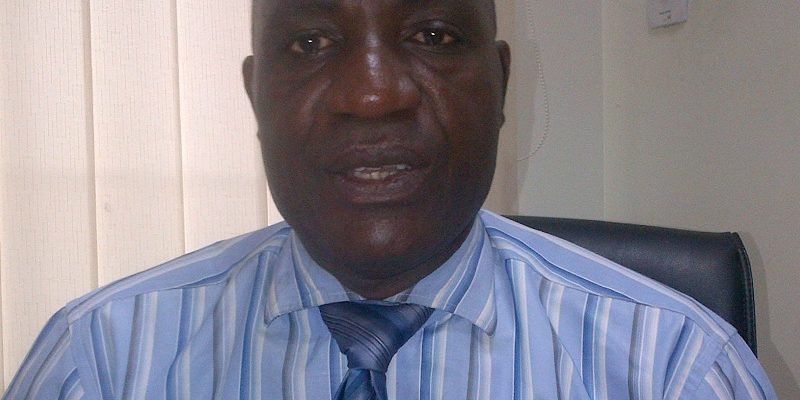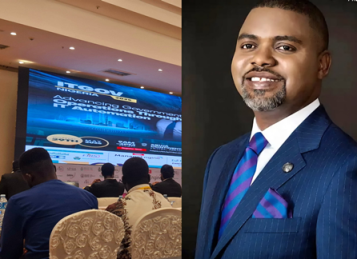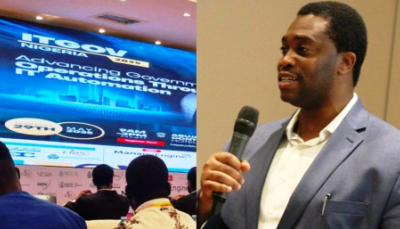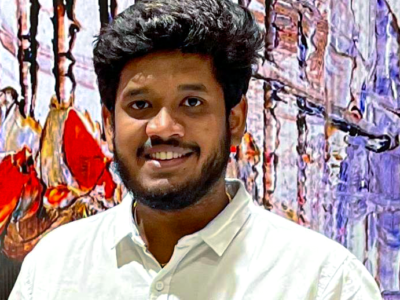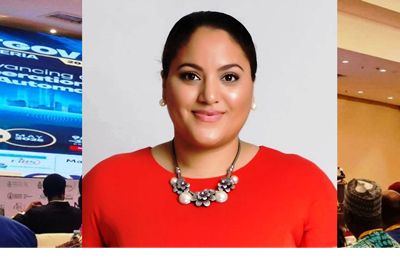‘Consumers have learned to rely on technology to escape fake products’
The influx of fake and sub-standard products in developing countries is a big business; it is estimated to be a $600 billion a year industry. The average consumer is faced with about 80 per cent chances of buying fake products. These products pose grievous threats to both the survival of local industries and the health of consumers. Thanks to the technology introduced by Sproxil Nigeria Limited backed by NAFDAC and other regulatory agencies of government, this evil is being steadily checkmated. Country Director, Sproxil Nigeria Limited, Dr. Lawrence Nwosu shares with IT Edge News, MARTIN EKPEKE and ANTHONY NWOSU on how Sproxil’s Mobile Authentication solution has helped to boost consumers’ confidence in products.
The Sproxil mobile based solution is synonymous with pharmaceutical products. How do you intend to take it to other consumer products?
Of high priority to us is to extend this solution to other sub-sectors, not only to protect the brand but also to protect lives. The transition is very easy for us, we are a total brand protection company, and so deploying to other sectors wouldn’t be of much challenge to us. We are going to use the same platform, the same method of SMS. The whole analytic will be the same. It is going to be very easy for us also to differentiate the non-pharmaceutical products from the pharmaceutical products. So the transition is very easy which we have already done. We have created a new platform for non-pharmaceutical companies; the reason you can see some non-pharmaceutical products are protected by us. For example, VitaFoam and Mouka Foam products, auto parts, motorcycle and tricycle parts and many other non-pharmaceutical products are protected by Sproxil’s Mobile Product Authentication (MPA). We have the technology and we understand how to integrate those sectors seamlessly.
To what extent can you say the Sproxil solution has helped to reduce or eradicate sub-standard products since it was introduced?
The solution has tremendously helped to reduce faking of pharmaceutical and non-pharmaceutical products in Nigeria and beyond because it is not limited to Nigeria alone. For example, those who fake anti-malarial medicine have refrained from faking them because we have made the consumers sensitive, we have made consumers to buy discriminatively in the sense that before consumers of vulnerable products pay for the product right at the point of purchase, they have to authenticate that the product they are buying is genuine. If it is not genuine, they have to discard it there immediately without losing their money. Over eight million verifications have been conducted across board. This is significant, and this shows you the extent to which it has significantly reduced the faking of most of the products, especially the anti-malarial and anti-diabetes products; also auto products and some cosmetics products. Consumers across the board have called on us, they have spoken through newspapers and other media to say how they have successfully been able to get good products instead of fake products. In the past and in the absence of any solution for detecting fake product from a genuine one, consumers simply buy anything that comes their way, but it is not so today. When consumers walk into any point of purchase today, it is very easy for them to know if the product is original or not, all that is needed is to scratch the covered label, send the message to a particular number and get a response almost immediately.
In Sproxil’s fight to protect people’s lives, there are people benefiting from faking products. How are you thriving while fishing in dangerous water?
Very interesting! You know bad habit is very difficult to break, and as you rightly pointed out, faking is a big business. It is not a business for the boys, there is no poor man who is involved in faking. Our solution is a destructive one, we have succeeded in destroying this elusive trade, we know that professional fakers are not happy about it, and they are fighting back. But it is very difficult for them to fight back as consumers themselves are becoming very sensitive. The consumers have learned how to rely on technology to escape sub-standard products. We also have the regulatory support; we have over 100 million Nigerians who have access to telephone, and those people are enlisted in the fight against sub-standard products either in the pharmaceutical and non-pharmaceutical sectors. Interestingly, fakers are not relenting to be honest with you, they have attempted to fake our label, they have tried to clone the unique pin, but we are faster and thinking ahead of them. We anticipated some of these problems and we have put different layers of security to make it difficult for them. That is not to say they have not been trying, they have tried to penetrate and clone the label, they tried so many things, they could but at each time they tried, we have been able to detect it. That is the whole beauty of the technology because if they are not trying, they are not also helping with the solution because the solution is destructive to them. To be honest with you, there are recent cases where they even cloned our label but because the numbers are very unique, it was not possible for them to deceive many of the consumers because at each time people want to authenticate, they tell them this is fake. We are continuously improving our technology to guide against fakers coming up with something more innovative to defeat the objectives of the solution.
Most of the products are imported, and we understand Sproxil has joined World Custom Organization, how has that been impacting on the fight against fake products?
The significant thing about our joining the World Custom Organisation is to be able to protect the products from the origin because Nigeria is basically an importing nation. And sometimes, if you decide to protect the products from Nigeria, the fakers have already flooded the market with their own products. So with a robust relationship with the World Custom organization now, we are able to go to the country of manufactured, right at the factory there and put our solution to it. When it is passing through international borders, the Custom people will recognize that. It will also help the Custom to identify which is a genuine product and which is not. Once they see any product with our solution, they know it is a genuine product coming from a genuine importer and shipper, and if the product doesn’t have such parameters, they question it. The solution will help the Custom and other security agencies to succeed in the fight against counterfeit and other sub-standard products. This is a very huge success both to the consumers, manufacturers and to those of us who are providing the service.
What is the relationship between Sproxil and Consol?
Consol provides call center services, what we did was to outsource our call centre services to Consol because there is no way you can deploy this service and access it optimally without having a call centre. The reason is that whatever happens, there will be issues at the consumer or the technology end, there may be other issue at the regulator end. So we needed a 24/7 call centre, and to be more efficient, we had to outsourced it to a company that is reputable. Consol is a reputable call centre service provider. When consumers have problem, for example if the network is not optimal at the time the consumer is trying the use product, the consumer can move straight and call the call centre, and the call centre will provide the consumer with the information that is lacking at that particular point in time. Another example is if a consumer sends a request to authenticate a product and a response did not come within 20 seconds, the consumer can call and interact with physical human beings and tell them, this is the product and serial number I have in my hand but I have not been able to get a response.
Is the call paid for or it is toll free?
When the consumer sends the text message, it is free. But when you have additional problem, the consumer pays for the call that is how it works. You don’t expect the brand owner to pay for all of that because if you factor all that together, the brand owner will be paying too much money, which is enough to discourage them. Mind you, some people are calling to verify the dosage of a particular product, some will call to say I want to talk to a doctor; some will call to say I want to be a distributor of these product while some will call for a different reason outside what the solution is designed to do for them.
Sproxil has monopoly in the authentication business.
Sproxil is not a monopoly company, what happens is that we are more efficient, vibrant and visible. We have about five other service providers: we have mPedigree, Pharmasecure, Brandshield, Kezzler and Sproxil. What happens is that we have a robust solution. There are many other companies licensed by the regulator to provide same services just to avoid one company monopolizing the sector. Sproxil is not just a Nigerian company and is not limited to Nigeria, we are spread all over the world, and we operate in seven countries in three continents. We have an international standard to follow; we are recognized globally as a brand protection service provider company. There may be some companies that are operating in one state or country. We are international players from day one, which is why people think that we are larger than life, we are not. There are other players in the field but we try to be distinct, we provide the best service and we invest so much in publicity. We invest so much in upgrading our technology; we invest so much in partnership with the regulators, we invest in change that will meet the international standard. That is why you see us everywhere.
In 2014, what are we expecting from Sproxil?
You should expect a more vibrant and robust Sproxil, providing superlative brand protection services across all sectors and across the globe. We have a plan and projection for the year 2014; we are going to expand to so many countries in Asia and Africa. We are also targeting about three countries in Europe and about four other countries in South America.


